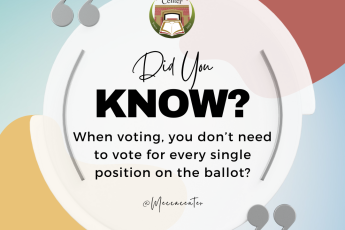By Ricardo Peña
When I was a very young boy, my parents noticed that one of my eyes drifted a little bit and became alarmed enough to take me to the eye doctor. The doctor informed my parents that I had a condition called amblyopia (pronounced am-blee-O-pee-uh) or “lazy eye.” It is a condition where the nerves connecting the eye to the brain fail to develop a full connection causing a degree of blindness in the affected eye. Everything is blurred and all colors are several shades darker, which explains why I couldn’t hit a fast ball in little league. If I didn’t have my one good eye then I’d be unable to read, drive, or admire the detail of a flower in my hand. I for one am extremely grateful for the gift of sight and by extension I have come to appreciate all of my other senses as well. However, I have also come to realize that we don’t just see and hear with our eyes and ears. In fact, we can see with our minds and hear with our hearts but the difference is that when it comes to our minds and our hearts we can become blind and deaf by choice.
Before converting to Islam, I had become a devout Catholic. I prayed every night and faithfully attended church services every Sunday. As a young man I was captivated by the teachings of Jesus in the Bible. You see, the Christian way of thinking is a seductive spiritual experience that is both good and bad. The reason for this is because everything in Christianity is built on a foundation of emotional appeals. It’s all about calling people to love, patience, kindness, compassion, and above all faith, faith, faith. We were constantly reminded that any semblance of doubt constituted a deficiency in our belief compelling us to strengthen our resolve ever more. We cultivated matters of the heart so that we were filled with love, kindness, and an iron-clad faith that was difficult to shake. But this dynamic came with a dangerous imbalance. While embracing the virtues of faith and good character, Christians have at the same time practically abandoned the laws of God.
As some of you may know, the Jewish scriptures known as the Torah and the Book of Prophets were put together by Christians under the single title of “The Old Testament” and included it in the Bible. The collection of books explaining the teachings of Jesus sometimes referred to as “The Gospel” by Christians and the “Injeel” by Muslims was given the title of “The New Testament” and also included in the Bible. So the Bible is basically made up of two parts, which are the Old Testament and the New Testament. This is important because Christians have their Laws of God in the Old Testament but it has been abandoned for the most part and no longer considered to be a body of law that must be obeyed. What they are left with are the warm teachings and parables of the New Testament that focus on matters of the heart. Beyond that they do as they please. In this way, Christians do not afford themselves the clear guidance of the law and it explains such things as why they eat pork and engage in interest even though the Bible forbids these things in the Old Testament.
Christians are therefore very deviant of their own laws (which is bad) but they have solid faith and good character (which is good). Clearly we cannot say that all Christians are good or bad, but in general if you were to visit almost any church you would find that good practicing Christians are a very warm and loving people. However, this is simultaneously their greatest strength and their greatest weakness. Where there is strong love you will also find deep pain leading to irrational thought, which is why inviting emotional Christians to understand Islam is extremely challenging. We come from the mind and they come from the heart. I can attest to this from my own experience.
Embracing Islam was not easy. I had to suffer a major heartbreak in order to accept the truth due to the love and faith I had built for Christianity. It took time but I eventually embraced Islam making it the single best decision I have ever made in my life. Once my heart was reconciled with Islam I converted and looked forward to the familiar spiritual experience among my new brothers and sisters. Instead what I discovered was the harsh reality that it wasn’t what I expected.
What I found among Muslims was that they practiced a rigid adherence to rules and rituals. All of the emphasis was on logical reasoning, deep analysis of Quran / Hadith and very little cultivation of the heart. My first Friday jummah came with a harsh rebuke from a brother after crossing his path during his Sunnah prayer – a rule that I didn’t know existed. If I had put holy water in a plastic bottle at a church a Christian would have immediately concluded that I must be ignorant and treated me with kindness when correcting me. No such patience among Muslims. We frown, we scold, we scowl, and we’re cold. What good is clear guidance if it doesn’t result in the good character that Allah repeatedly describes as being pleasing to Him?
Like Christians we collectively suffer from an imbalance though it is a different kind of imbalance. While we are blessed with a Quran perfectly preserved and the authentic teachings of our beloved Prophet in the body of ahadith, we focus too much on ritualistic practice and adherence to the rules without thinking about the results the practice is supposed to bring about in the form of akhlaq and adhab – that is beautiful character and good manners.
The reason why serious Christians have such solid faith and warm character is because they practice, practice, practice. The reason why they are deviant is because they don’t practice rational thought and logical reasoning as applied to religious law. Serious Muslims are amazing when it comes to obedience to the law because they practice, practice, practice. But the reason why Muslims are not as kind, patient, and gentle as Christians is because we don’t practice matters of the heart as much as Christians do. Christians are driven by hope while Muslims are driven by fear. What we need is to establish equilibrium between the two as mentioned in Surah As-Sajdah where Allah (swt) says:
“Only those believe in Our Signs, who, when they are recited to them, fall down in prostration, and celebrate the praises of their Lord, nor are they (ever) puffed up with pride. Their limbs do forsake their beds of sleep, the while they call on their Lord, in Fear and Hope: and they spend (in charity) out of the sustenance which We have bestowed on them. Now no person knows what delights of the eye are kept hidden (in reserve) for them – as a reward for their (good) deeds.” – As-Sajdah (32) Ayat 15-17
As it is today we have a dilemma. Christians are like the blind that can’t see but depend on their hearing so much that they can hear a pin drop on a carpet from across the room. Muslims are like people who can see but depend on their sight so much that their ability to hear suffers and we take our hearing for granted. If we were doing Islam the right way we would be better than the Christians in this regard. We should be the champions of good faith and great character. Instead, our spiritual senses are deficient. It is like the lazy eye where we can see but not clearly enough to read the signs that say we must hear and listen with our hearts. In effect, we suffer from iman-blyopia where our hearts fail to make a full connection with Allah. We walk around conducting the affairs of our lives in this dunya feeling secure in the fact that we can see just fine but we don’t realize that our submission is incomplete. Each and every one of us should pause, reflect upon ourselves, and wonder … we can see but can we hear?







Leave a Comment